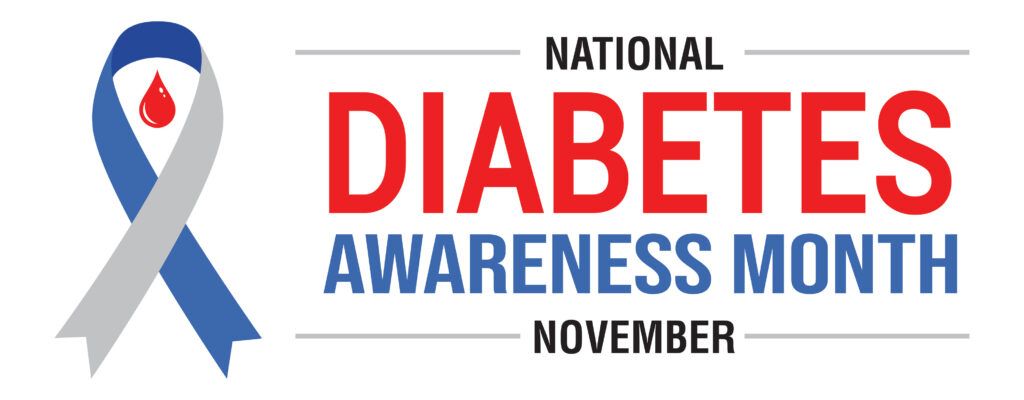Managing Diabetes in Real Life: A Practical Guide to Blood Sugar Control
Trinova Medical | Articles
Living with diabetes affects more than 37 million Americans - that's about 1 in 10 people. Yet studies show that 76.5% of adults with diabetes struggle with consistent blood sugar management, often due to the challenges of daily life. Whether you're navigating busy workdays, maintaining an active lifestyle, or dealing with unexpected schedule changes, managing diabetes requires constant attention and adaptation.
The statistics tell a compelling story:
- 62% of people with diabetes report difficulty maintaining stable blood sugar during irregular meal times
- 45% struggle with glucose management during exercise
- 58% have missed at least one medication dose in the past month
- Only 1 in 3 people check their blood sugar as often as recommended by their healthcare provider
But here's the encouraging news: research shows that small, practical adjustments to your diabetes management routine can lead to significant improvements. Recent studies indicate that people who develop consistent strategies for handling common challenges are 3 times more likely to maintain healthy blood sugar levels, even when life gets unpredictable.
In this guide, we'll address the five most common questions about managing diabetes in real-world situations, providing practical solutions backed by the latest medical research and real-world experience.
1. How Can I Keep My Blood Sugar Stable When My Schedule or Meals Are Unpredictable?
Unpredictable schedules can make diabetes management challenging, but these strategies can help you maintain control:
Quick Tips for Schedule Changes:
- Keep a "diabetes go-bag" with supplies and snacks
- Set phone reminders for medication times
- Use a meal-planning app to track carbs
Smart Strategies for Irregular Meals:
- Practice the plate method (½ non-starchy vegetables, ¼ protein, ¼ complex carbs)
- Keep portion-controlled snacks handy
- Consider longer-acting insulin options (discuss with your healthcare provider)
Real-Life Example: Sarah, a patient with type 2 diabetes, manages her busy sales job by packing a cooler with pre-portioned meals and setting medication alarms on her phone.
2. What Are the Best Snacks to Keep My Blood Sugar from Dropping During Exercise?
Physical activity is excellent for diabetes management, but you need the right fuel to exercise safely:
Best Pre-Exercise Snacks:
- 15-30 minutes before exercise:
- Small apple with 1 tablespoon of peanut butter
- Half a banana and a small handful of nuts
- 6 whole-grain crackers with cheese
- Greek yogurt with berries
During Exercise Guidelines:
- For workouts longer than 30 minutes, keep fast-acting carbs nearby:
- Glucose tablets
- Sports drinks (sugar-free for regular breaks)
- Dried fruit
Post-Exercise Recovery:
- Combine protein and complex carbs within 30 minutes after exercise
- Monitor blood sugar for several hours after intense workouts
___
3. How Often Should I Check My Blood Sugar, and How Can I Make This a Habit?
Regular blood sugar monitoring is crucial for diabetes management. Here's how to make it routine:
Recommended Testing Schedule:
- Type 1 Diabetes:
- 4-10 times daily
- Before meals and snacks
- Before and after exercise
- Before driving
- Type 2 Diabetes:
- 1-4 times daily
- Before meals
- Two hours after meals
- Before bed
Making It a Habit:
- Link testing to daily activities (morning coffee, brushing teeth)
- Keep monitors in multiple locations
- Use smartphone apps for reminders and tracking
- Create a testing kit for work or travel
___
4. What Should I Do If I Accidentally Miss a Dose of Insulin or Medication?
Missing a dose can happen to anyone. Here's what to do:
If You Miss a Dose:
- Check your blood sugar immediately
- Note how long it's been since your last dose
- Follow these guidelines:
- Less than 2 hours late: Take the missed dose
- More than 2 hours late: Contact your healthcare provider
Prevention Strategies:
- Use a pill organizer or insulin pen timer
- Set up automated refill reminders
- Keep backup supplies at work or school
- Use smartphone apps for medication tracking
Important: Never "double up" on diabetes medication without consulting your healthcare provider.
__
5. How Can I Recognize Early Signs of Diabetic Complications Like Nerve or Eye Issues?
Early detection is key to preventing serious complications. Watch for these warning signs:
Nerve Problems (Neuropathy):
- Tingling or numbness in feet
- Burning sensation in hands or feet
- Loss of temperature sensitivity
- Balance problems
Eye Issues (Retinopathy):
- Blurry or fluctuating vision
- Dark spots in vision
- Poor night vision
- New floaters or flashes
Other Warning Signs:
- Slow-healing cuts or sores
- Frequent infections
- Excessive fatigue
- Changes in skin texture
When to Contact Trinova Medical Immediately:
- Sudden vision changes
- Severe foot pain or numbness
- Chest pain or shortness of breath
- Blood sugar levels that won't stabilize
References
- American Diabetes Association. (2023). "Standards of Medical Care in Diabetes." https://diabetes.org/diabetes/treatment-care/standards-of-care
- Centers for Disease Control and Prevention. (2023). "National Diabetes Statistics Report." https://www.cdc.gov/diabetes/data/statistics-report/
- National Institute of Diabetes and Digestive and Kidney Diseases. (2023). "Diabetes Management." https://www.niddk.nih.gov/health-information/diabetes/overview/managing-diabetes
- American Association of Diabetes Educators. (2023). "Exercise and Type 2 Diabetes." https://www.diabeteseducator.org/living-with-diabetes/exercise
- Mayo Clinic. (2023). "Diabetes Diet: Creating Your Healthy-Eating Plan." https://www.mayoclinic.org/diseases-conditions/diabetes/in-depth/diabetes-diet/art-(850) 848-9500
- Journal of Diabetes Science and Technology. (2023). "Best Practices in Blood Glucose Monitoring." https://journals.sagepub.com/home/dst
- National Eye Institute. (2023). "Diabetic Eye Disease." https://www.nei.nih.gov/learn-about-eye-health/eye-conditions-and-diseases/diaAmerican Academy of Neurology. (2023). "Diabetic Neuropathy." https://www.aan.com/patients-and-caregivers/diabetic-neuropathy
___
Trinova Medical
provides patient-focused primary care in Pensacola, FL, featuring coordinated care teams, convenient scheduling, and round-the-clock provider access for all your healthcare needs. Our specialized
Trinova 65+
program offers seniors comprehensive medication management, dedicated care coordination, and personalized health assessments designed specifically for older adults. We're committed to listening, caring, and partnering with you on your health journey. Call
(850) 848-9500 for more information.
Disclaimer: The content on this blog is intended for informational and educational purposes only. It should not be used as a substitute for professional medical advice. Always consult with your healthcare provider regarding any health-related questions or concerns.
Recommended Post:





